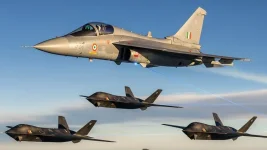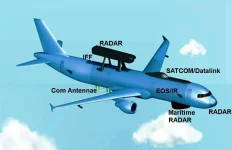- Views: 1K
- Replies: 13

Anand Mahindra, a leading figure in Indian industry, has stirred discussion on India's missile defense capabilities after highlighting Israel's robust defense systems in the wake of recent attacks.
Mahindra emphasized the need for "ironclad defence interception systems," drawing attention to Israel's multi-layered network that includes the Iron Dome, David's Sling, Arrow systems, and the forthcoming laser-based Iron Beam. He stressed that possessing these kinds of advanced systems is as important as offensive weaponry.
Mahindra's comments have sparked a debate among defense analysts. While acknowledging the value of advanced missile defense, some argue that fully replicating Israel's approach within India may not be feasible. Israel's compact landmass makes comprehensive missile defense more achievable, whereas India's vast size and diverse borders present a greater economic challenge.
Additionally, Mahindra's statement suggests a potential gap in public understanding of India's missile defense capabilities. While Israeli systems might be familiar to some Indians, Mahindra's commentary implies a lack of public knowledge surrounding India's own ballistic missile shield program.
India's Ballistic Missile Shield
India's missile defense program is currently under development in two phases:- Phase 1: The deployment of Prithvi Air Defence (PAD) and Advanced Air Defence (AAD) missiles designed to intercept ballistic missiles at varying altitudes.
- Phase 2: Development of advanced interceptors (AD1 & AD2) for high altitude and longer-range ballistic missile defense.
Need for Nuanced Discussion
The debate sparked by Mahindra underscores the importance of public discussion on India's missile defense strategies.While mirroring Israel's approach might not be the solution, ongoing investments and advancements in India's own defensive capabilities remain crucial for national security.



